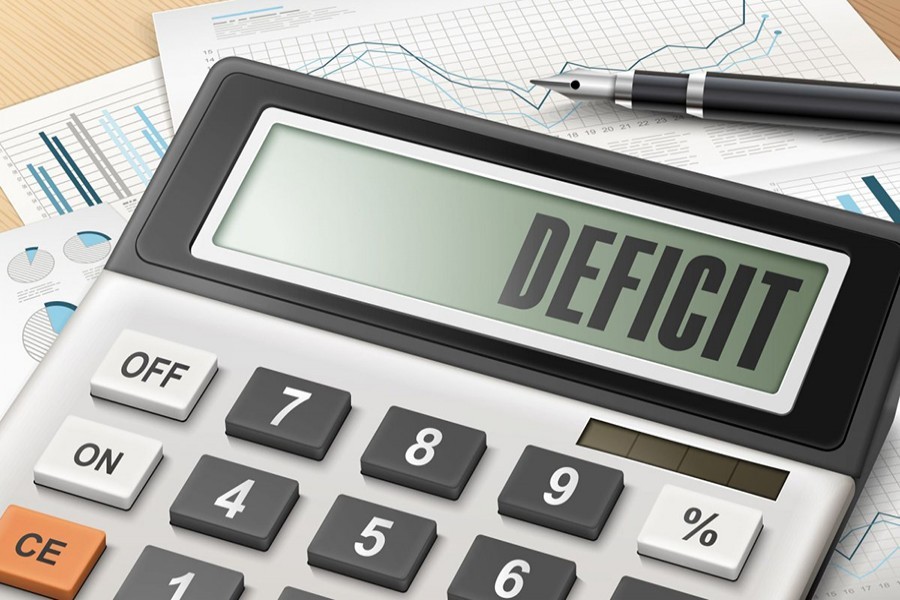In the backdrop of a week financial market, the government is now facing difficulty in mobilising sufficient resources for budgetary expenditures. The expenditures are rising but there are big shortfalls in revenue earning. Operating expenditure for running the statecraft has significantly increased of late, especially due to enhanced salaries and allowances of public servants.
The domestic debt limit is also being crossed because of huge loans from domestic sources to finance the budget deficit. And the size of development budget is rising steeply because of megaprojects.
The government's budgetary wish-list is quite long. But the main source of funding is borrowing through loans, something which has become quite expensive.
In such a situation, the government is searching for alternatives to generate additional income. These include implementing projects by utilising idle money of autonomous bodies, collecting tolls on highways, and collecting disputed dues from mobile phone companies by exerting pressure.
However, concomitant with rising government expenditure, there are questions about transparency of how it is spent. There are allegations of corruption in project implementation, unilateral escalation of project costs, lack of accountability, and funding of inefficient state-owned enterprises with taxpayers' money are.
The budget deficit, during the fiscal year 2018-19, stood at Tk 560 billion after revision of the budget and the current fiscal year has also started with a hefty deficit. Sadly, Bangladesh is ranked the lowest in the world in terms of tax-GDP (gross domestic product) ratio.
Although a new VAT (value added tax) law was introduced in July for boosting revenue income, it is being implemented in a lopsided manner. Not much improvement is, therefore, expected in revenue mobilisation from this tax segment.
Also when major portion of income tax revenue comes from service-holders through deduction at source from their salaries, many others who dodge taxes remain beyond reach. Overall, the avenues for increasing revenue income remains narrow, as only 2.2 million people from among 40 million middle class citizens actually pay income tax.
Despite these limitations, the government's budgetary outlay is quite gigantic at around Tk 5.0 trillion. The development budget accounts for over Tk 2.11 trillion, and the remainder is meant for operating expenses. The gap between income and expenditure is almost Tk 1.5 trillion.
Alongside rise in expenditure compared to income, the government is increasingly falling in debt trap. An amount of Tk 111.90 billion had to be borrowed for financing the budget deficit last year, while it was Tk 870 billion in the previous year. The domestic debt-GDP ratio has now risen to 17 per cent.
There has been maximum increase in salaries and allowances of government employees during the past 10 years. The expenses under this head have now become huge although the expected decline in corruption has not been materialised. Around 28 per cent of the budget is being spent on salaries, allowances and pensions of public servants.
Another bloated head is interest payment, which now accounts for 18 per cent of the budget. And a large part of this loan comes from domestic sources such as banks and savings certificates. Bangladesh has now fallen into a vicious trap of huge budget -- with massive deficit -- and incurring of exceedingly costly debt.
The government estimates that around Tk 2.25 trillion now remains idle with different autonomous, semi-autonomous and statutory bodies. It has, therefore, turned its attention to utilising this money. A new law has been approved by the cabinet recently for spending 75 per cent of this money for various projects.
However, there has been mixed reaction to this move. Unease has been generated in the banking sector as it is already facing a liquidity crisis. The banking sector bosses apprehend a big problem if this money is ultimately withdrawn, as many private sector banks depend on these deposits. Now, it is to be seen how the government handles this initiative.
Meanwhile, Bangladesh Telecommunication Regulatory Commission (BTRC) is exerting maximum pressure on two largest companies in the telecommunication sector - Grameenphone and Robi - to pay outstanding dues of Tk 134.47 billion, which the companies dispute.
Side by side, the Prime Minister has recently issued a directive at a meeting of the Executive Committee of National Economic Council (ECNEC) to collect tolls from vehicles plying on national highways. A move to impose tolls on four national highways is already underway.
Experts say the living expenses of ordinary people would rise if tolls are collected from the highways. High quality toll roads exist in many countries as alternatives to ordinary roads. But if the highways in Bangladesh remain the same as before and the movement of vehicles is not seamless, such move might just add heavy costs to the living expenses of the citizens.
The government is implementing 11 megaprojects with involvement of Tk 4.75 trillion. But costs and implementation period of most of these projects have escalated repeatedly. As a result, their economic utility-cum-viability has diminished.
Overall, there appears to be absence of good governance in fund management of the government, a culture which encourages corruption and puts additional burden of taxes on the ordinary people. It is high time that the government exercised utmost caution in reducing budget deficit.
Helal Uddin Ahmed is a retired Additional Secretary and former Editor of Bangladesh Quarterly.


